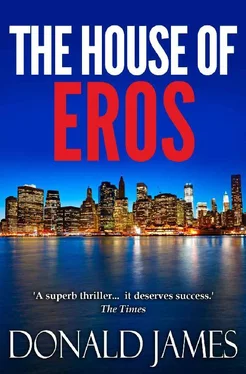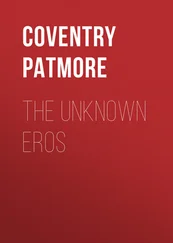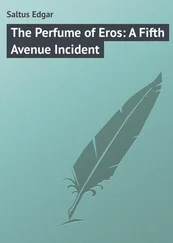But of course she couldn’t do that. First because it would confirm any suspicions Sunny might have. And second because she didn’t know if it was true.
Seated in the Thai Airlines short-haul from Bangkok, Max Benning could see below him the tiny shapes of fishing boats on the grey-blue sea. They had already begun the long shallow descent on Ho Chi Minh City’s Tan Son Nhut airport. As they banked lower he could see that the fishing fleets were distinguished by different sails, a slack heavy red sail in the boats to starboard, a dull white a few miles ahead and closest to the coast a strangely shaped black sail, a wind-filled rhomboid of canvas.
As the undercarriage thumped down for the landing, Max looked out across the paddy fields and blue hills fleeing away behind his line of sight. A dusty single-track road built high on an embankment cut across the paddies and headed for the hills. He found himself already overwhelmed by the sadness of the country and by the sense that the dead on both sides, East and West were somehow present in this strangely forlorn landscape.
Did Max feel this because he knew his father had felt these things? His mother had given him a small pack of his father’s letters before he left. He remembered by heart the lines of a letter Peter Benning had written to his wife during the French war from a foxhole at Dien Bien Phu: ‘We shall certainly be defeated here – that is as it should be. We are trying to destroy an ancient tradition. There will be no peace for either side until the end of the century.’
The wheels hit the ground and the pilot put the engines into reverse thrust. His father wrote with a strange apocalyptic foresight. Peace still evaded the tortured people of this land. And the memory of the war was still not effaced from the life of millions of Americans. But it now seemed the Vietnamese government was about to make the first stumbling overtures towards the West. Their leaders had watched the Soviet empire crumble in Europe.
Without Western aid they saw the writing on the wall for themselves.
The letter Max had received from Ho Chi Minh City had been remarkably frank: ‘We are aware of the dangers of corruption among some provincial officials. The trial of Quatch will be open to Western journalists. It will prove once and for all that the government is striving towards an open, democratic Vietnam.’ For Max a postscript had been added to the letter sent to other journalists. For his work in tracing and rescuing Vietnamese antiquities during the war, Peter Benning was to be posthumously decorated with the Ho Chi Minh Star. Max was asked to be present to accept it.
Leaving the air conditioning of the plane Max stepped into air like a thick soup. Widely travelled as he was, he had not experienced this degree of heat and humidity outside a sauna. A big Australian journalist behind him said: ‘Up in the jungle it’s different. Worse. My name’s Hunter.’
Max indicated the card pinned to his shirt. ‘Benning,’ he said. They shook hands.
Around them milled a group of Western journalists carrying cameras and camera bags. They stood together for a moment on the oil-stained concrete apron. A long fascia board across low concrete buildings read: TAN SON NHUT AIRPORT, and underneath: WELCOME TO HO CHI MINH CITY.
‘They’re a very courteous nation,’ Hunter said. ‘Don’t take it personally.’
From the airport bus, old and bouncing on its springs, Max looked out at the former city of Saigon spread before them under cloud seeping from the sky over the shoulders of a north-east monsoon. From ground level the interminable paddy fields, pocket handkerchiefs of flooded land between green embankments, looked desolate and uncared for. A freshly painted American tank, its turret half blown away, stood by the roadside in a square of neat whitened rope.
At a hotel in the city outskirts, the bus stopped. Duffel bag hooked over his shoulder, Max stood in line waiting to get off. As he reached the doorway he stepped down on to the hotel forecourt and stopped, looking towards the hotel. The man behind him eased him aside. Max grunted an apology. He was looking at a group of Vietnamese standing in the doorway of the hotel. Mostly he was looking at the remarkable Amerasian girl in a sleeveless pink high-necked blouse. As he watched, the leader of the Vietnamese welcoming party crossed towards the visiting journalists filing off the bus and began introducing himself and his assistant interpreters.
‘Mr Benning,’ Nan Luc said. ‘Welcome to Vietnam.’ He watched the muscles flicker up the olive-smooth arm as she held out her hand to him. Her face was composed, blank. ‘I’m Nan Luc,’ she said. ‘I’ve been assigned to look after you during your stay.’
The possibility of seeing her again was certainly in his mind when he accepted the Vietnamese government invitation, but he had never dreamed it would happen like this, moments after arriving in Saigon. He looked at her, remembering the impression she had made on him in Paris, seeing her as you might a hologram, flickering from Asian to Westerner at the slightest movement of her head. He shook her hand. It was long-fingered, with carefully shaped, polished nails.
She led him towards the hotel. ‘What happened in Paris?’ he said, as soon as they were out of earshot of the others. ‘Did I cause trouble for you?’
Nan smiled a greeting to another of the interpreters as they passed. ‘My grandmother had me recalled,’ Nan said. ‘She was afraid, for Quatch’s sake, of reviving interest in your father.’
‘Are you saying Quatch was responsible for my father’s death?’
She shook her head. ‘That’s not a charge at the trial. Nevertheless I think the Chief Prosecutor, Van Khoa, believes it’s so.’
They were entering the hotel. ‘Will we get a chance to talk?’ he asked her.
‘Later,’ she said. ‘You’ll want to take a shower. I’ll show you to your room. Then maybe you would like to meet in the bar. Trin Lo is a kilometre or two from here.’
‘Trin Lo?’
She looked up at him. ‘Trin Lo is the village where the monument has been erected in honour of your father,’ she said.
‘A monument?’
‘He was an extraordinary man,’ Nan Luc said.
‘So I’m beginning to understand.’
‘During the worst fighting at Hue he entered the old Imperial library and brought out many hundreds of kilos of historical documents and artifacts. Vietnam is indebted to him.’
After Max had taken a cold shower and changed, Nan Luc met him in the bar. There was no barman and the room, like the rooms above, showed damp patches on the ceiling and curling leaves of paint coming off the walls. The other newsmen were just arriving in groups or with their various assigned interpreters. Hunter, the Australian, detached himself and brought his drink over to the table with Nan Luc and Max.
‘Tell us about you, Nan Luc,’ Hunter said. He looked like a huge, lecherous schoolboy.
‘That would not be helpful,’ she said firmly. ‘Mr Benning and myself have a visit to make before supper. There is little time.’ She turned to Max. ‘We have a jeep outside,’ she said. ‘When you’re ready, Mr Benning.’
Outside the hotel they got into the jeep. He waited until she pulled the vehicle out of the courtyard before he spoke. ‘After Paris I always hoped we’d meet again. It seemed pretty unlikely.’
‘I believed we would.’ He looked at her in surprise. Perhaps she had surprised herself with the vehemence with which she had said it. ‘So much is changing in Vietnam,’ she added quickly. ‘Men like Van Khoa are coming to the top. He is not like Quatch. He is an honest man.’
She drove the jeep carefully through the massed bicycles and velo taxis out along the boulevard towards the suburb of Cholon. Decaying French colonial villas were set back from the road. Many seemed gutted and empty, others were the homes of a dozen families whose children played in the puddles of the drive or hauled bundles of firewood cut from the overgrown gardens.
Читать дальше












